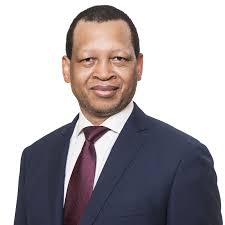By Delisa Thwala
Amid the ongoing talks of another electricity tariff, Eswatini has secured electricity imports for the next 10 years, ensuring a stable energy supply while the country continues its transition towards renewable energy.
This was announced by the Eswatini Electricity Company (EEC) Managing Director, Ernest Mkhonta, during the third EU Green Power Transformation Forum at Happy Valley Hotel, supported by the EU Delegation in Eswatini and GET. Invest, GIZ, and GET. Transform.
The current power purchasing agreement between South Africa’s Eskom and EEC will elapse next year. Mkhonta confirmed that bilateral agreements have been secured, guaranteeing the country’s energy supply.
He emphasized that while this secures Eswatini’s energy needs, the focus now shifts towards ensuring the affordability of electricity, particularly for industrial users, who play a critical role in the country’s economic growth.
Speaking to an audience of energy stakeholders, Mkhonta stressed the importance of balancing energy security, pricing, and sustainability as Eswatini integrates renewable energy sources, such as solar and wind, into the national grid.
“The challenge is to ensure that the electricity supply remains secure and affordable while moving towards environmental sustainability,” he said.
Mkhonta further explained that industrial consumers subsidize domestic users and that maintaining affordable energy for industries is vital to supporting economic growth.
He added that the EEC is working closely with the Eswatini Energy Regulatory Authority to integrate Independent Power Producers (IPPs) into the grid without compromising the affordability of electricity.
The EEC also conducted studies to identify areas within the grid where new renewable projects can be integrated with minimal infrastructure costs, which will help keep tariffs low.
Mkhonta assured attendees that the utility is committed to maintaining a secure energy supply while advancing renewable energy integration.
RELATED: EEC presents E930,000 CSI partnership package
Last week, the Minister of Finance Neal Rijkenberg addressed the nation in his weekly video blog and highlighted the unavoidable increase in electricity costs that emaSwati will face.
Rijkenberg warned that electricity prices will rise significantly impacting both households and businesses.
He said this will be likely caused by the fact that Eskom might increase the electricity cost by 30-35%, leaving the EEC with no alternative but to increase prices for the end user.
The Minister added that the EEC must be commended for managing to keep prices relatively low over the past few years, which has however, come at the cost of dwindling profits.
As a result, the EEC has been absorbing higher costs from Eskom, which has led to a precarious financial situation for the company.

“While overall inflation in Eswatini has been decreasing, currently standing at 4.2% compared to 5.4% in 2023, the cost of electricity remains a critical concern.
Over the past few years, the EEC has implemented minimal increases in electricity tariffs to shield consumers from the full impact of rising costs.
For instance, there were periods when the tariff increase was as low as 3%, and for two years, there was no increase at all,” he said.
“The EEC’s profits have dwindled over the last five years. They used to make almost half a billion Emalangeni in profit at some stage, but by not passing the full cost through, they have been taking a lot of that internally,” Rijkenberg explained.
“As they are now, unfortunately, they are kind of on almost zero profit territory, which is a little bit dangerous because if any shocks come, they need to pass the shocks straight through to the end user at this stage,” he said in addition.
Rijkenberg urged residents to adopt energy-saving measures to mitigate the impact of the expected price hikes.
RELATED: Concerns over possible conflict of interest in EEC Chair appointment
“Practical steps such as using energy-efficient appliances, installing timers and blankets on geysers, and considering solar geysers can help manage electricity bills more effectively,” he stated.
“Electricity is one of those things that one can manage and try to reduce. For instance, a geyser uses a lot of electricity, so putting timers on the geysers or using solar geysers can make a significant difference,” he added.
Rijkenberg further assured emaSwati that the government is exploring various strategies to manage the cost increase and minimize its impact on the economy.
“We will see what we can do as a government to try to manage that cost and maybe try to phase it in, really trying to help so that it doesn’t have a devastating impact on the economy.”
“Even though inflation overall might be okay going forward, electricity costs are going to probably have a certain dynamic to them which might be difficult to absorb for the man on the street,” Rijkenberg noted.

